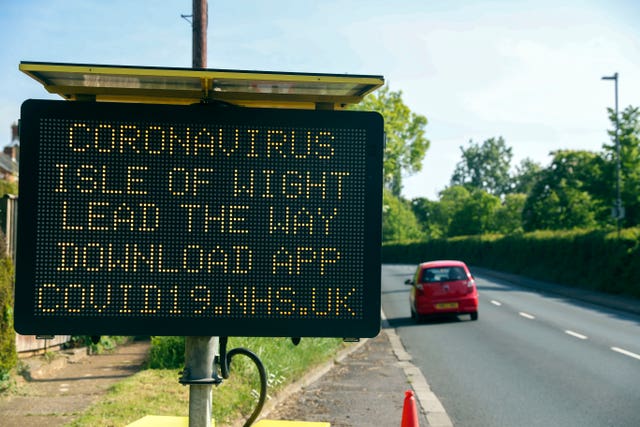Contact-tracing app risks widening digital and social divide, MPs told
Experts have warned that millions without essential digital skills or access to technology be left isolated by the app rollout.

The Government’s coronavirus contact-tracing app rollout risks worsening an already wide digital divide in the UK, MPs have been told.
Senior figures from charities and foundations working to boost digital skills in the UK have warned that one in five people will not be able to use the new NHS Covid-19 app because they do not have a smartphone.
MPs on the Department for Digital, Culture, Media and Sport (DCMS) Select Committee were told that digital exclusion “overlapped” with social exclusion issues, with those on lower incomes and black, Asian and ethnic minority (BAME) groups being the least likely to have digital skills and therefore less likely to be able to access the app.
The contact-tracing app, currently being tested on the Isle of Wight, is part of the Government’s test, track and trace strategy, and is central to its efforts in slowing the spread of coronavirus.
Liz Williams, chief executive of digital skills organisation FutureDotNow, told the Select Committee that the app’s rollout could “add to social divides”, further excluding those who suffer from “data poverty”.
“Undoubtedly the contact-tracing app will be a big part of how we get out of lockdown, but it does rely on having a smartphone and access to data – and one in five don’t have that,” she said.

“I think the access to data point is something really important to realise. We’ve seen a lot of data poverty coming through as a very new issue because people on low incomes are often on pay as you go packages and therefore they don’t have large data volumes, and the places that they’ve been able to go to to get data – for example, the coffee shop – have been locked down.
“My concern with the contact-tracing app strategy is that it has the potential to add to social divides and employment outcomes because it would be easy to imagine a scenario where employers might make it a prerequisite to have that.”
She also highlighted concerns over the app only working on phones running a “relatively new operating system”, meaning that charities refurbishing older devices for those currently without one may not help solve the issue in some cases.
MPs heard that substantial investment was urgently needed from the Government to close the digital skills gap.
Ms Williams said divide was no longer a strong enough word and that it should be called a “digital chasm”, adding that she was “frustrated” that digital skills firms had not received better funding for both the Government and the tech industry.
Further highlighting the issue, Helen Milner, chief executive of digital skills charity Good Things Foundation, told MPs that four million people in the UK have never used the internet, and although the majority were over 65, around 36% were not.
She said that “seven million people in the UK can’t open an app”, with more than half of those being aged under 65.
“The thing to remember is there is a huge overlap in the UK between digital and social exclusion,” she said.
“So if we think about those people who are affected by social exclusion – for example, almost half of everybody who has an income below £11,500 lacks those essential digital skills, so they’re part of these almost 12 million people in the country who lack essential digital skills. You can compare that to only 11% of people who have a household income of more than £25,000.”
Ms Milner also said that those with a disability were “more than twice as likely to be digitally excluded than those without one”.
She added that experts were particularly worried about “non-native English speakers, refugees, black, Asian and minority ethnic people” who lacked digital skills, describing them as “particularly at risk at this moment”.
Last week, research by University College London scientists indicated that people from BAME communities are two to three times more likely to die from coronavirus.





